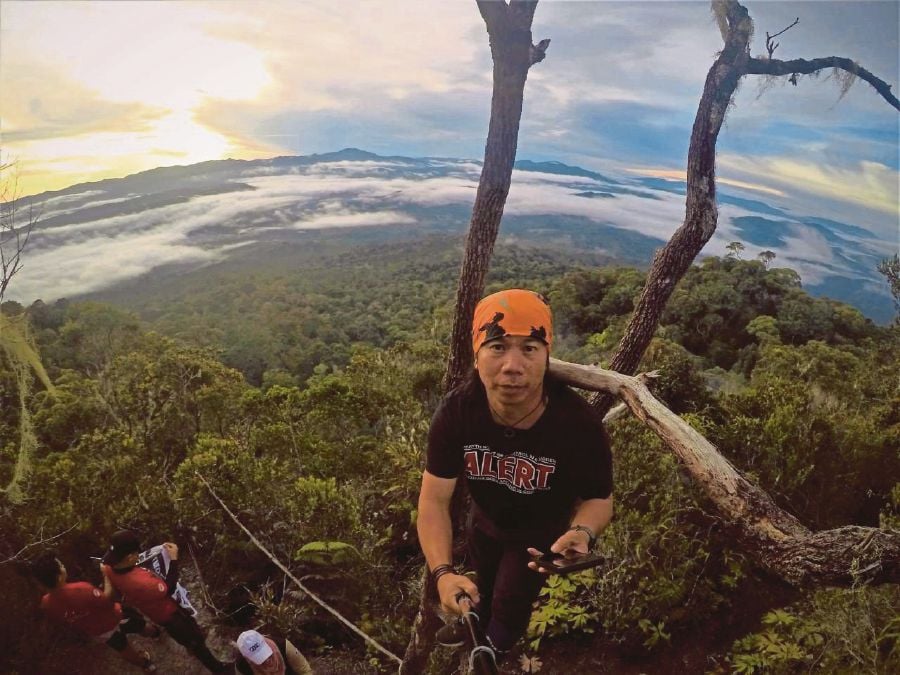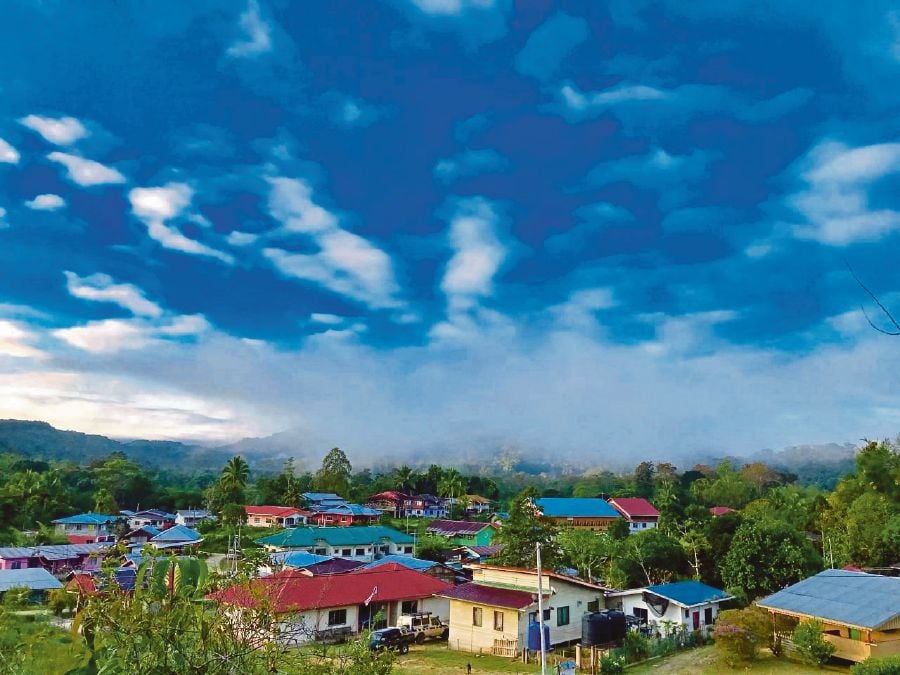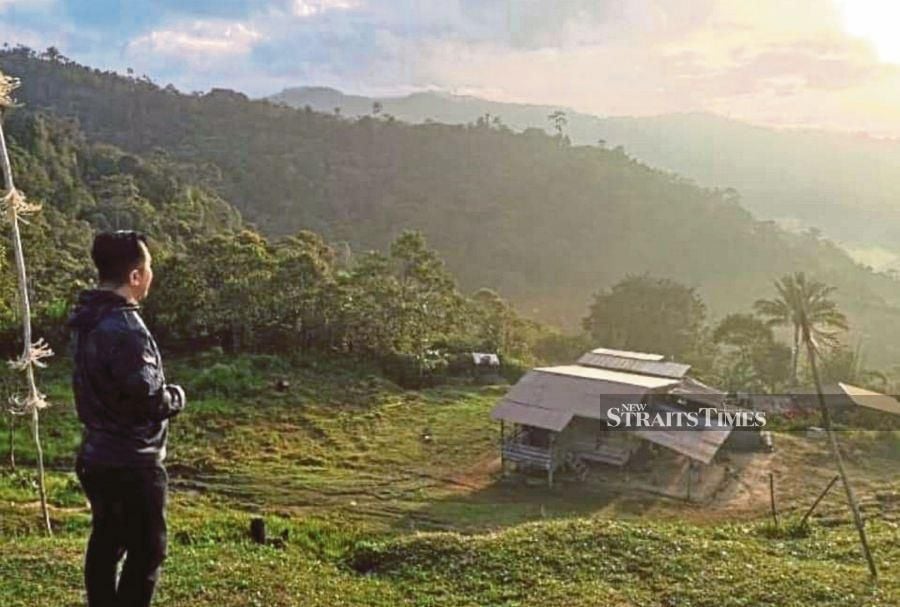Long Pasia, Kampar, Tenom and Nabawan have amazing landscapes. They are also veritable oases of calm in a global storm.
Long Pasia free of virus due to outsider ban
 |
| Villager and forest guide Lait Lakong says none of the villagers wear face masks when they are moving around the village
SIPITANG: Nestled in the heart of Borneo, the people of Long Pasia here continue to live peacefully despite the Covid-19 pandemic and global economic crises.
Even though the village is located in the district that recorded four Covid-19 cases with three of them having recovered from the illness, none of the 300 villagers is infected.
Lait Lakong, 48, said the total ban on the entry of visitors, as well as villagers who might have been infected based on their travel history, had helped ensure zero cases in the village.
Long Pasia, which means “the mouth of the red river” in the Lundayeh language, is 112km from Sipitang.
It is renowned for its ecotourism, culture and rich history, especially among Europeans.
Lait, a forest guide for the past 16 years, said he was not worried about having his income affected due to the lack of tourism activities.
“If I contract Covid-19 from tourists, I would be the one affected. This will be the time for me to focus on my drawings and other things,” he said, adding that he had been selling his paintings all over the world.
He said the people in Long Pasia were self-sufficient and did not have a lot of financial commitments compared with those living in the city.

Close cooperation in Tenom keeps virus away
 |
TENOM: There are 60,000 people here, but none have contracted Covid-19.
Kemabong assemblyman Jamawi Jaafar attributed the zero cases to cooperation from the enforcement agencies, health authorities, community leaders, the Information Department, as well as the people.
Tenom, known for its agriculture, coffee production, as well as Rundum Highland, one of its attractions, is three hours’ drive from the state capital.
“Following the enforcement of the Movement Control Order (MCO) , we have coordinated with the district’s Disaster Committee to screen everyone and bar those who have fever from coming here.
“There are roadblocks at three checkpoints to prevent outsiders from coming in.
“The clinic here also screens those with symptoms (associated with Covid-19).”
He said community development leaders, under the native court, had erected signage to inform outsiders not to enter villages in the district without getting the committee’s approval.
He said those from the Information Department had been educating the people on the importance of wearing face masks, maintaining personal hygiene and practising social distancing to prevent them from getting infected.
He said even though villagers were given food aid, they had been advised to start growing vegetables to supplement their food stock.
“There is a possibility that the MCO will be extended.
“The people have to be prepared.
“Although the government will help the people, it may not be sufficient for everyone.”
In Nabawan, community development leader Ampulas Kaluh said roadblocks helped protect its 13,000 population.
“Since the implementation of the MCO, people have been staying where they are although their families are in other districts.
“We are holding to that principle, to limit people’s movement, especially outsiders, to maintain zero cases in the district.”
He said the district was bordered by Tawau, a Covid-19 red zone.
He said those from Indonesia were not allowed to enter the district through Pegalungan via boat.
“We hope border controls will be continued even after the MCO is lifted.”
Tenom and Nabawan are among nine districts categorised as green zones in Sabah.
Others are Keningau, Kota Marudu, Kudat, Pitas, Kuala Penyu, Tongod, and Beluran.



Comments
Post a Comment